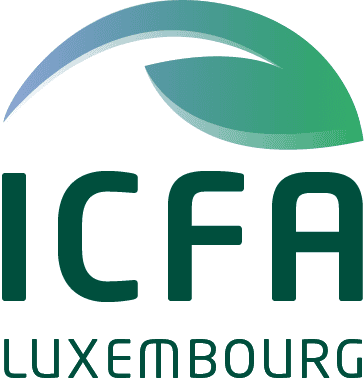Our Target Areas
Climate Mitigation Finance
Climate Mitigation Finance
Projects to reduce, limit or sequestrate GHG emissions.
Climate Adaptation Finance
Projects to adapt to current and expected effects of Climate Change.
Our Eligibility Criteria
Are you an Emerging Investment Manager?
- The applicant is a first- or second-time investment management or investment advisory company, established or in process of establishing (the “Applicant”) and intends to set up an impact investment vehicle (the “Project”).(1)
The Applicant undertakes to uphold best reporting and market practices.(2)
- The Applicant will demonstrate a commitment to develop and implement best practices in the management of responsible investments.(3)
- The Applicant will or intends to be duly authorized by a competent regulatory and/or supervisory authority of countries or jurisdictions not included on the FAFT/GAFI Black List.
The Project will finance activities made with the intention to generate positive, measured, and substantial impact.(4) The Project will highlight if/how it is addressing unmet needs for specific target populations.
The Project will have an integrated process in place to identify, manage, monitor, and measure the environmental, social, and governance impacts, both positive and negative(5), on 100% of its investments.
- The Project will apply exclusion criteria in line with Accelerating Impact’s Exclusion Policy and ensure the compliance of its investments with the defined exclusion criteria.(6)
The Project’s impact strategy must focus on relevant impact themes, with an intention to contribute to climate change mitigation and/or climate change adaption.(7)
The Project will have at least 75% of its assets contributing to one or more of these impact themes.
The Project will have a target portfolio consisting of investments in target countries above the programme minimum. Assets under management for every ICFA Cohort need to reach a minimum of 70% to be invested in countries eligible to receive international climate finance.(8)
The investment strategy is built from insights gained through the feasibility studies and the expertise of its team members, utilizing local networks and knowledge, but still to be refined.
The team has a solid grasp of the potential impact of their investment vehicle and has begun formulating their theory of change. However, the concepts of impact still require refinement and integration into a comprehensive impact measurement system.
The investment manager team boasts a sufficient array of expertise necessary for the successful launch of the fund. This expertise includes fund / vehicle management, investment management, investment acumen, technical proficiency, structuring, legal competencies, pipeline development, and fundraising capabilities.
The investment manager team possesses ample expertise and local networks, enabling them to effectively delineate a pipeline aligned with the investment strategy and impact aspirations to convince institutional investors to commit to their investment vehicle.
The Fund Project is viable and its investment strategy, impact strategy, pipeline, potential structure, and fundraising strategy are coherent.
The investment manager team’s collective knowledge, time commitment and experience provide a robust foundation for taking advantage of the programme support and reinforcing their ability in navigating the complexities of fund establishment and operation, ensuring a well-rounded and effective approach to achieving the investment vehicle's objectives.
Accelerating Impact reserves the right to update the eligibility criteria, the selection criteria, and the exclusion policy at any time. Accelerating Impact has final authority in case any conflicts arise between the eligibility criteria, the selection criteria, the exclusion policy, and any other classification systems, taxonomies, or policies.
(1) Eligible Applicants are unlisted entities, typically young companies with limited resources, that are initiating their first or second institutional vehicle, with the objective to advise and/or manage this vehicle. Managed accounts, SPVs, and pilot vehicles with limited AUM are not considered institutional vehicles. If the Applicant is part of a group of companies, i.e., multiple companies which are directly or indirectly controlled by a controlling entity, eligibility will consider on a group basis. Consortiums of non-eligible entities can be considered eligible if the parties are in process of establishing an eligible entity, subject to the group-level considerations.
(2) Applicants undertake to prepare, at least, an impact or environmental and social (E&S) report , and, in addition but not limited to, CSR/sustainability guidelines/policy, annual CSR/sustainability report, engagement policy, active ownership policy, etc. published at the level of the Applicant or part of the group. Applicants will be subject to the Accelerating Impact’s General Terms of Business and General Code of Conduct (https://www.acceleratingimpact.org/our-policies).
(3) Best practices include being a signatory to recognized responsible investment frameworks such as, but not limited to, the United Nations Principles for Responsible Investment (UN PRI) and the Operating Principles for Impact Management (OPIM).
(4) The notion of measurable impact refers to the ability to 1) identify strategic impact objectives, 2) quantify and assess the outcomes using recognized frameworks and methodologies which may include, but not only: the Impact Reporting & Investment Standards + (IRIS+), the Theory of Change, or the Operating Principles for Impact Management (OPIM), and 3) mobilise the necessary resources to implement the impact measurement process.
(5) Negative impact management includes, but is not limited to the monitoring and assessment of principle adverse impacts, and the implementation of responsible pricing and responsible growth objectives.
(6) A non-exhaustive list includes those established by development finance institutions (DFIs), UN organizations, the International Finance Corporation (IFC) Exclusion List, the Social Investing Framework by Accelerating Impact and LuxFLAG, or any other recognized standards.
(7) Climate impact themes are defined according to internationally and/or regionally agreed classification systems and taxonomies around climate change mitigation and/or climate change adaptation, including without limitation the MDBs’ Common Principles for Climate Mitigation and Adaptation Finance Tracking. Please see https://www.icfa.lu/our-eligible-areas.
(8) Please see https://www.greenclimate.fund/countries
Our Selection Criteria
Investment Strategy
- The investment strategy is innovative in terms of types of projects that are financed and/or their methods of financing.
The investment strategy relies on thorough feasibility studies, grounded in technical expertise, local presence, and reliable information sources.
The investment strategy includes clear investment criteria specifying geographies, sectors, company types, instrument types, etc. and risk mitigation strategies, as reflected by the proposed portfolio construction.
The investment strategy demonstrates financial viability for the vehicle and GP and the potential to be replicated including an appropriate fund structure and a well-defined divestment strategy.
The investment manager has identified deal flow channels and already invested or secured a strong pipeline of investment opportunities.
- The Project’s investments are intended to have substantial impact by addressing unmet needs, guided by an impact strategy appropriate for the intended beneficiaries that can be measured and monitored through best practice KPIs against portfolio-level targets.
- Impact is operationally integrated across the lifecycle of fund management, from investment decision through to exit as evidenced by its theory of change, IMM, and integrating impact considerations post-exit.
- The impact strategy translates into clear ESG criteria, including DNSH and impact risk mitigation approaches and negative impact monitoring, which are balanced and sufficiently taken into account, as consistent with the overall strategy.
- The Project demonstrates through its impact methodology how the impact is to be assessed, measured and reported on a regular basis throughout the whole lifetime of the investments.
- The Project is focused on challenging geographies.
- The Project envisages to provide non-financial support to its investees across their lifecycle.
Team
- The Applicant’s team consists of minimum two (2) key persons both of whom are, or will shortly be, full-time dedicated to the project and engaged on an equal or near-equal footing in terms of leadership and operational responsibility and who have the necessary skills and experience to manage an investment vehicle.
- The team collectively has the operational know-how, and necessary diversity of expertise in the targeted geographies, sectors, and themes to implement the impact and investment strategy.
- The team has experience in developing, structuring and managing impact finance deals related to the Project’s investment strategy including impact and ESG management.
- The team is aligned around a common strategic vision and has a credible plan for sustained, full-time engagement by all team members, with clearly defined roles and a long-term commitment to the Project’s success.
- The team demonstrates adequate personal and financial commitment (i.e. min 1% of capital plus sweat equity by each key person) to strive for the success of the fund and have adequate financial means to endure delays in the Project’s set-up process.
- The Applicant has, or intends to have, a local presence, partnership or other means of support in the Project’s investment regions with a strong added value if the Project addresses challenging geographies.
Fund Raising
- The financial returns (as projected in the financial model) are capable of supporting the Project’s expected capital structure, considering the longer-term impact objectives, and the financial returns are attractive for private and institutional investors taking into account the non-financial return.
- The Applicant demonstrates fundraising ability through access to excellent networking channels and their ability to present the Project in a convincing manner.
- The Applicant has crafted a cohesive fundraising strategy with a phased approach to different investor types informed by a feasibility study.
- The Applicant has initiated fundraising and presents a list of relevant investors (including anchor investors and de-risking capital providers), and provides a high level of detail on the current phase of investor discussions (e.g., “first contact”, “interest received”, “due diligence started”).
- The Applicant has entered advanced fundraising discussions with credible investors and is able to demonstrate this with documentation (e.g., a support letter).
Accelerating Impact reserves the right to update the eligibility criteria, the selection criteria, and the exclusion policy at any time. Accelerating Impact has final authority in case any conflicts arise between the eligibility criteria, the selection criteria, the exclusion policy, and any other classification systems, taxonomies, or policies.
Our Selection Committee
Accelerating Impact has appointed an independent Selection Committee for the ICFA, which uses its in-depth expertise in impact investing to propose a balanced selection of innovative and promising managers.






